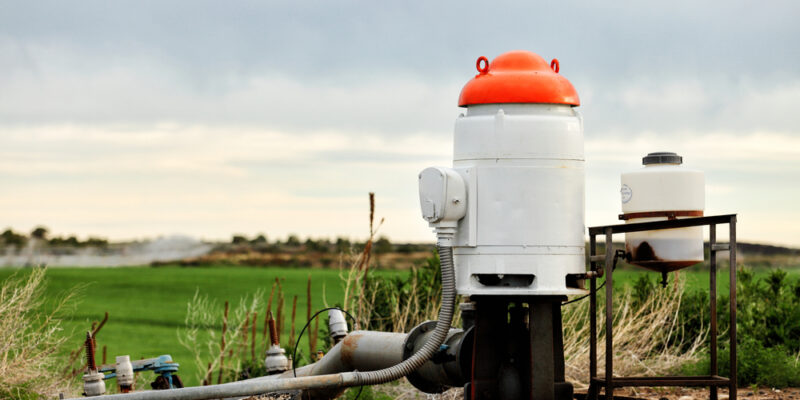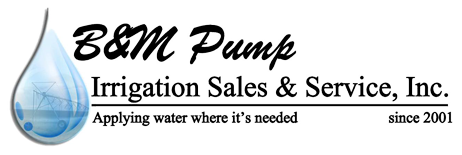
Preventative Maintenance Tips for High-Performance Irrigation Pumps
High-performance irrigation pumps are the heart of efficient irrigation systems, powering the delivery of water across large areas to ensure healthy crops, lush lawns, or thriving landscapes. Like any critical piece of equipment, irrigation pumps require regular maintenance to keep them operating at peak efficiency. Neglecting preventative maintenance can lead to system failures, costly repairs, and reduced performance, all of which compromise the effectiveness of your irrigation systems. By implementing a thorough and consistent maintenance plan, property owners, farmers, and landscapers can extend the lifespan of their equipment while ensuring reliable water distribution throughout the year.
The Importance of Preventative Maintenance for Irrigation Pumps
The role of irrigation pumps in managing water distribution cannot be overstated. They serve as the engine behind most irrigation systems, drawing water from a source such as a well, pond, or reservoir and delivering it through pipes, sprinklers, or drip lines to where it’s needed most. When these pumps are not regularly maintained, their performance can degrade over time. Components can wear out, seals may become brittle, and debris can accumulate, all contributing to diminished flow rates and potential system breakdowns.
Preventative maintenance ensures that minor issues are caught and corrected before they evolve into major problems. This proactive approach is far more cost-effective than reactive maintenance, which often involves emergency repairs and extended downtime. Moreover, well-maintained pumps use energy more efficiently, helping to reduce electricity costs and carbon footprint. When considering the cost of replacing a failed pump, investing time in routine maintenance is a smart long-term strategy for anyone relying on irrigation systems.
Essential Daily and Weekly Checks for Optimal Pump Performance
Keeping a routine maintenance schedule is one of the most effective irrigation system tips for avoiding operational hiccups. On a daily basis during active irrigation seasons, pump operators should inspect the pump visually for signs of leaks, unusual noises, or vibration. These signs often indicate underlying issues such as worn bearings, misalignment, or failing seals. Checking pressure gauges and flow meters ensures that the system is delivering water at the expected rate and pressure. Any sudden drop in performance could signal a blockage, leak, or mechanical issue that needs immediate attention.
Weekly checks should go a step further by including the examination of electrical components. Ensuring that wires are intact and free of corrosion or fraying is crucial for pumps that rely on electric motors. Operators should also clean filters and strainers, as accumulated debris can restrict water flow and strain the pump motor. Checking oil levels in lubricated pumps and topping up or changing the oil as necessary will prevent wear and tear on internal components. These small, consistent efforts can significantly enhance the longevity and reliability of your well and pump services.
Seasonal Maintenance: Preparing for Changing Conditions
Each season brings unique challenges that can affect irrigation pumps differently. At the beginning of the irrigation season—typically in spring—it’s essential to perform a comprehensive inspection and tune-up. This includes checking all mechanical seals, inspecting impellers for damage, and ensuring that all valves and fittings are tight and free of leaks. After a period of dormancy, components may shift or degrade, so restarting the pump gradually and under supervision is a wise move.
In the peak summer months, when irrigation systems are under the greatest demand, it’s critical to maintain consistent monitoring. High usage can accelerate wear, making mid-season inspections necessary to catch signs of stress. This is also an ideal time to flush the system and remove sediment or algae buildup that could impair performance.
As fall approaches and irrigation needs taper off, the focus should shift toward winterization. Draining water from the pump and associated lines will prevent freezing damage in colder climates. If the pump is stored outdoors, insulating or covering it can protect it from the elements. Indoor storage of portable pumps is even more effective. Applying rust inhibitors to metal surfaces and lubricating moving parts will prepare the pump for storage and a smooth reactivation in the spring. These seasonal rituals are indispensable for the uninterrupted operation of high-performance irrigation systems.
Recognizing Early Warning Signs of Pump Failure
Catching early signs of trouble is key to preventing catastrophic pump failure. One of the first indicators of a struggling pump is a change in its sound profile. Irrigation pumps typically operate with a consistent hum or whir, and any deviation—such as grinding, screeching, or knocking—suggests mechanical issues that warrant immediate investigation. Vibration is another red flag; while some vibration is normal, excessive shaking often signals misalignment or imbalance.
A noticeable decline in water pressure or flow rate may be due to impeller wear, clogged pipes, or a failing motor. Electrical issues, such as frequent tripping of circuit breakers or blown fuses, point to potential wiring problems or motor overloads. Additionally, if the pump is frequently cycling on and off, it may be dealing with a pressure tank issue or a leak in the system. Addressing these symptoms early through well and pump services can prevent a total system shutdown and save substantial repair costs.
Even small issues, like moisture collecting around seals or unusual smells from the motor, should not be ignored. They may seem insignificant but could indicate seal failure or overheating, which can escalate quickly if left unaddressed. Keeping detailed maintenance logs allows operators to track the performance of their equipment over time and recognize patterns that might suggest deeper problems.
The Role of Professional Well and Pump Services in Long-Term Maintenance
While many preventative tasks can be handled by property owners or staff, there are certain aspects of irrigation pump maintenance best left to professionals. Well and pump services provide the expertise, tools, and diagnostic capabilities to assess the health of the entire irrigation system thoroughly. Annual professional inspections can include tasks such as flow testing, motor diagnostics, and vibration analysis—procedures that are difficult for the average user to perform accurately.
Technicians can also recalibrate control systems, inspect submersible pump installations, and ensure compliance with local water management regulations. Their insights are particularly valuable for optimizing system efficiency and designing upgrade paths as technology evolves. Many well and pump services also offer maintenance contracts that provide scheduled check-ups, ensuring that no critical tasks are overlooked.
By partnering with professionals, landowners can ensure that their irrigation pumps are maintained to the highest standards. This not only extends equipment life but also enhances water conservation efforts, an increasingly important goal in regions facing water scarcity. Regular professional maintenance is a cornerstone of responsible irrigation system management, and when combined with vigilant day-to-day care, it forms a robust defense against pump failure.
A Commitment to Sustainability and Efficiency
Preventative maintenance is not merely about avoiding breakdowns—it’s about fostering a mindset of stewardship and efficiency. High-performance irrigation pumps are an investment, and like any investment, they require ongoing attention to deliver optimal returns. Through diligent daily checks, seasonal upkeep, and expert assistance from well and pump services, irrigation systems can perform reliably year after year.
As water becomes a more precious resource and energy costs continue to climb, maintaining irrigation systems is not just smart—it’s essential. Implementing these irrigation system tips ensures not only a healthy landscape or bountiful harvest but also contributes to broader sustainability goals. When pumps are cared for properly, they become dependable partners in cultivating growth, conserving resources, and building resilience in our agricultural and landscaping practices.
Need an Irrigation System Company in Seminole, TX?
Welcome to B&M Pump Irrigation Sales & Service, Inc.! We are your professional irrigation specialist! Our typical services include complete pump service, water well service, system design, and pivot systems. We deliver personal service and reliability to our customers in Texas, Oklahoma, New Mexico, and Arizona. No matter where you are in the southwest, B&M Pump Irrigation Sales & Service, Inc., is a name you can trust. We strive to educate owners and operators on making pumps and motors last longer and work more efficiently. We sell good quality products at a fair price and stand behind the products we sell. Give us a call today to speak with one of our service experts today!
Categorised in: Irrigation
